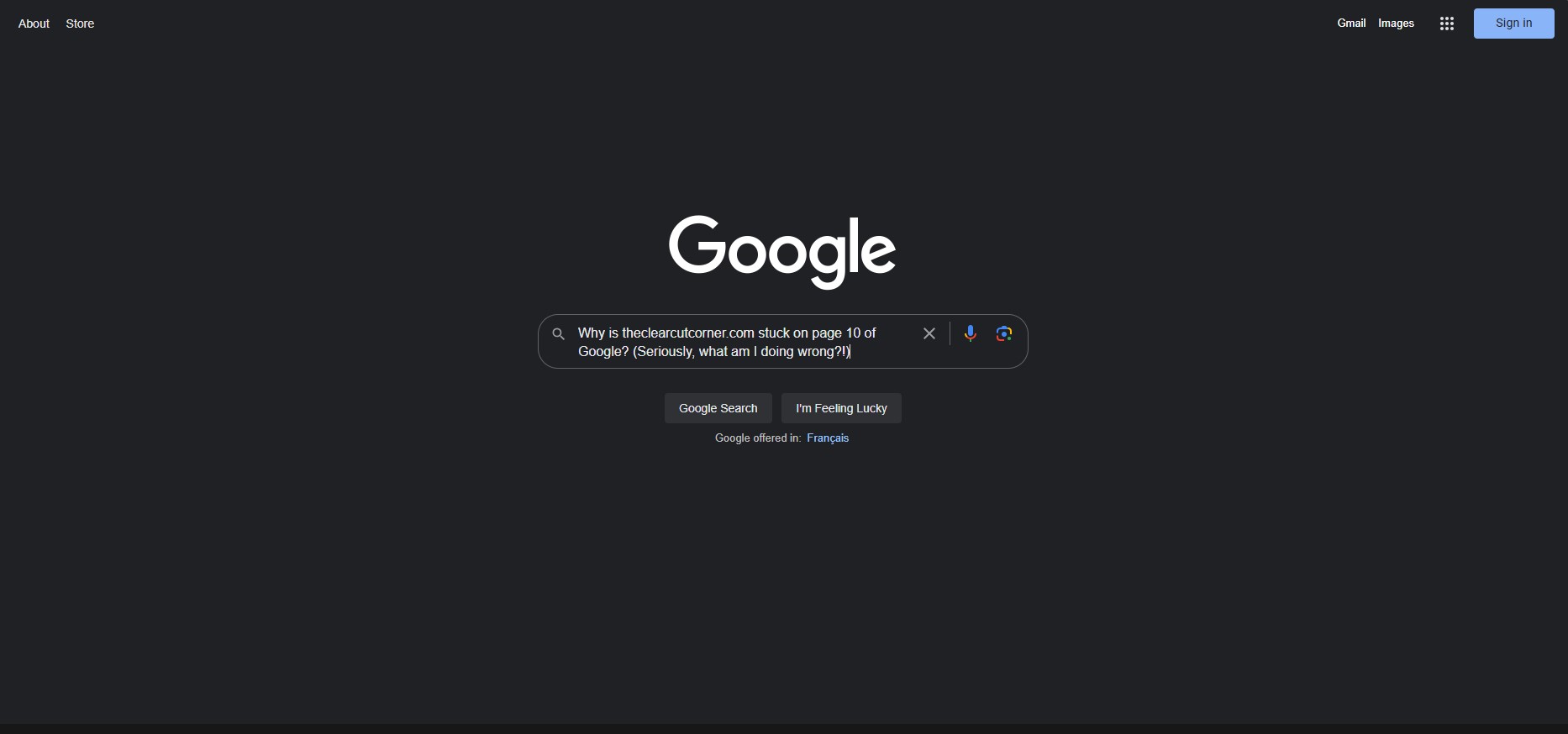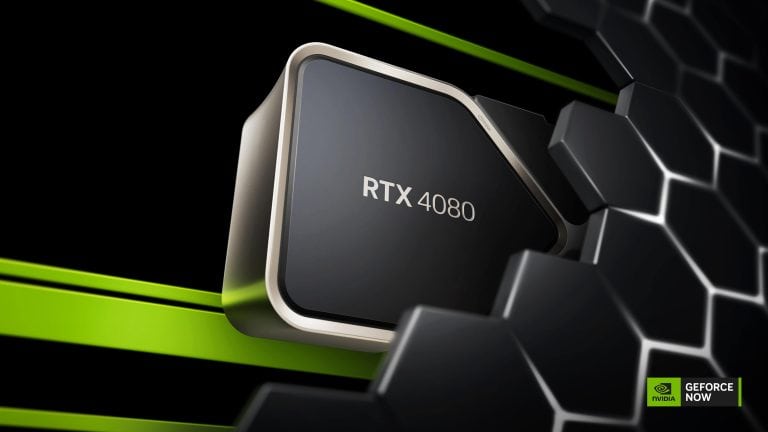How PageRank Works: A Simple Guide for Anyone Who Uses Google (So, Everyone!)
The conspiracy that culminated in my obsession with figuring out how Google ranks webpages started in a selfish place. See, I launched theclearcutcorner last year with the naive hope that my “tech wisdom” would magically catapult me to the first page of Google, showering me with ad revenue, fame, and maybe even a book deal. (Hey, a nerd can dream, right? 😂)
But after months of averaging a whopping two visitors a day (and one of them was my spouse), I realized something had to change. I couldn’t just sit around and wait for the internet gods to bestow their favor upon me. I needed a plan, a strategy, a secret weapon. That’s when I stumbled upon one of Google’s tools for ranking pages: PageRank. Little did I know, this algorithm wasn’t exactly designed with the little guys in mind, but it was about to become my new obsession.
In the Beginning, There Was a Man, and His Last Name is Page
No, this isn’t the opening line of a biblical epic. But it is the start of a revolutionary tale in the tech world. Our story begins at Stanford University in the late 90s, with two brilliant PhD students, Larry Page and Sergey Brin, who were determined to tame the wild west of the early internet. Back then, the web was a chaotic mess of information, with no easy way to find what you were looking for.
But Page and Brin had a eureka moment: what if they could use the links between web pages to determine their importance? It was a simple yet ingenious idea that formed the basis of PageRank, the algorithm that would eventually power Google’s search engine and change the way we navigate the internet forever.
The Foundation of the Web: Understanding the Power of Links
Before we dive into the nitty-gritty of PageRank, let’s talk about the building blocks of this whole shebang: links.
What is a link? Think of the internet as a massive city filled with millions of websites (buildings). Links are the roads that connect these buildings, allowing us to hop from one website to another with just a click. In tech-speak, these links are called “hyperlinks,” but let’s not get too fancy here.
The Popularity Contest: Every time a website links to yours, it’s like casting a vote for you in the internet’s popularity contest. The more votes you get, the higher you rank in Google’s eyes.
The Cool Kids Table: But not all votes are created equal. Links from reputable websites, like those ending in .edu or .gov, are like getting a nod from the cool kids. They hold more weight than links from shady sites.
How PageRank Works
Remember our internet city? Well, PageRank is like the city’s traffic control system, directing the flow of attention and determining which buildings (websites) get the most visitors.
The Main Streets: Think of high-authority websites (like Wikipedia, major news outlets, or government websites) as the city’s main streets. They have the most traffic (PageRank) because they’re the most trusted and well-known destinations.
The Side Streets: When these main streets have roads (links) leading to other buildings (websites), it’s like directing some of their traffic (PageRank) to those smaller streets.
Busy Intersections: Buildings (websites) with multiple roads (links) leading to them from other popular streets have more traffic (PageRank) themselves. It’s like a busy intersection – the more popular streets that connect to it, the more traffic it gets.
Traffic Jams and Detours: But here’s where it gets tricky. PageRank doesn’t just flow endlessly. Some of it gets “lost” along the way, like cars getting stuck in traffic or taking detours. This is where the “damping factor” comes in. Think of it like a traffic light that occasionally stops the flow to prevent any one street from getting completely overwhelmed. It’s Google’s way of making sure that the popularity is spread around and that even smaller websites have a chance to get noticed.
The Dark Side of Link Building
Every popularity contest has its cheaters, and the internet is no exception. Some websites try to game the PageRank system with shady tactics like:
Link Farms: Think of these as the internet’s equivalent of a high school clique artificially inflating their popularity by liking each other’s selfies.
Hidden Links: Some websites try to sneak invisible links onto their pages, hoping to trick Google. It’s like hiding vegetables in your kid’s mashed potatoes – sneaky, but ultimately pointless.
Paid Links: Some websites just straight-up buy links, like bribing the cool kids to be your friend.
But Google isn’t fooled that easily. Their algorithm is like a vigilant hall monitor, always on the lookout for these shady tactics. Getting caught using these schemes can lead to your website being demoted in search results or even removed from Google’s index altogether – a fate worse than detention!
PageRank Today
PageRank is still a big deal in the world of Google. While the search engine giant’s algorithm now considers hundreds of factors when ranking websites, PageRank still holds a special place at the top.
Think of it like this: PageRank might not be the only way to get into the hottest clubs (aka, the top of Google’s search results), but it’s definitely the VIP pass that can get you noticed. Even though Google doesn’t publicly share PageRank scores anymore, it’s still working behind the scenes to assess your website’s authority and influence.
The PageRank Paradox – A Digital Utopia or a Pipe Dream for Small Fry?
Okay, let’s recap. PageRank is Google’s way of measuring a website’s popularity based on the number and quality of links it receives. In theory, it’s a beautiful system. Create awesome content, get other websites to link to you, and watch your PageRank (and your Google ranking) soar. It’s like a digital utopia where the cream rises to the top, and everyone gets a fair shot at internet fame and fortune.
But here’s the problem: it’s not that simple. Sure, the big guys, like The New York Times or TechCrunch, have no problem racking up backlinks. They’re already established, with massive audiences and a reputation for quality content. But what about the little guys, the independent bloggers, the small businesses, the passionate creators just starting out?
Let’s be real, even if I write the most mind-blowing, earth-shattering blog post on Artificial Intelligence, the chances of a major website linking to theclearcutcorner are slim to none. It’s like trying to get a date with a supermodel – sure, it could happen, but it’s not exactly a reliable strategy.
So, where does that leave us little guys? Are we doomed to languish in the depths of Google’s search results, never to see the light of day? Is PageRank just a pipe dream for those of us without a massive audience and a team of SEO experts?
Honestly, I don’t have all the answers. But I do know this: understanding PageRank is the first step towards playing the game, even if the odds are stacked against us. It’s like knowing the rules of poker – you might not win every hand, but you’ll at least know when you’re being dealt a bad one.
And hey, maybe, just maybe, if enough of us little guys band together and start sharing each other’s content, we can create our own little corner of the internet where quality content reigns supreme, regardless of PageRank. It might not be at the top of Google’s search results, but it’ll be our own little slice of digital heaven.






